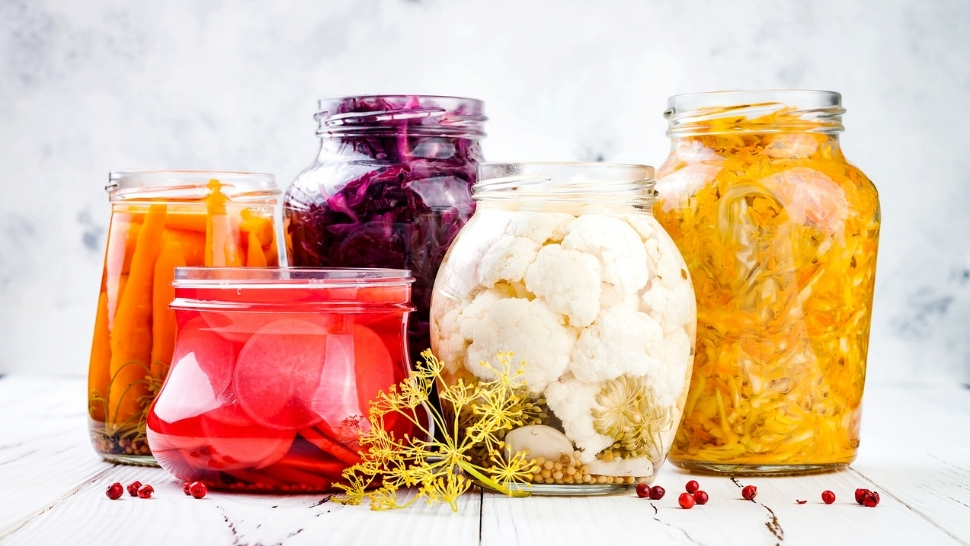
What’s the Buzz?
Postbiotics, the newest “-biotic” aimed at gut health
What does the science say?
Most of us have heard of pre- and probiotics, but there’s a new kid on the block known as postbiotics. The term “–biotics” collectively refers to the different ways our body alters our natural gut microbiota to house the healthy bacteria (probiotics) that are needed for optimal metabolic health, immune function, and to prevent disease. Probiotics feed off dietary fibers from plants (prebiotics), but also rely on specific substances to help them break down in the body. Enter postbiotics.
Postbiotics are functional compounds that indirectly help our body by breaking down other -biotics and altering our gut microflora with bacteria that promote health. They are produced by microorganisms in food during the fermentation process: kefir, yogurt, and fermented vegetables such as sauerkraut or kimchi are all good sources of postbiotics. Postbiotics may also have a direct effect on our gut microbiota. Studies in humans are still limited, but they may inhibit certain pathogens, modify the body’s immune response, and exhibit anti-inflammatory, antioxidant, and cancer-inhibiting properties.
Postbiotic research gets fascinating when it comes to food. Because postbiotics are not living organisms like probiotics, there’s no challenge of keeping them stable and alive — paving the way for new food applications. A few promising examples include helping manufacturers to increase product shelf life without the use of additives. Postbiotics may also become a vital component in what’s known as “antimicrobial active packaging.” This type of food packaging uses antimicrobial agents from animals, plants, and other substances to deter spoilage and deterioration during transport and storage.
What’s the takeaway?
The scientific community knows our gut microbiota plays a vital role in overall health and disease prevention, and postbiotics can help shape the makeup of our microbiota. There’s a lot of promise around them for advancements in the safety and integrity of products manufactured for our food system. So, don’t be surprised if you start seeing marketing claims for postbiotic products popping up in an aisle near you. But remember you can always get postbiotics by consuming tasty, fermented foods and beverages such as kombucha, miso, sauerkraut, pickles, or cultured dairy products!